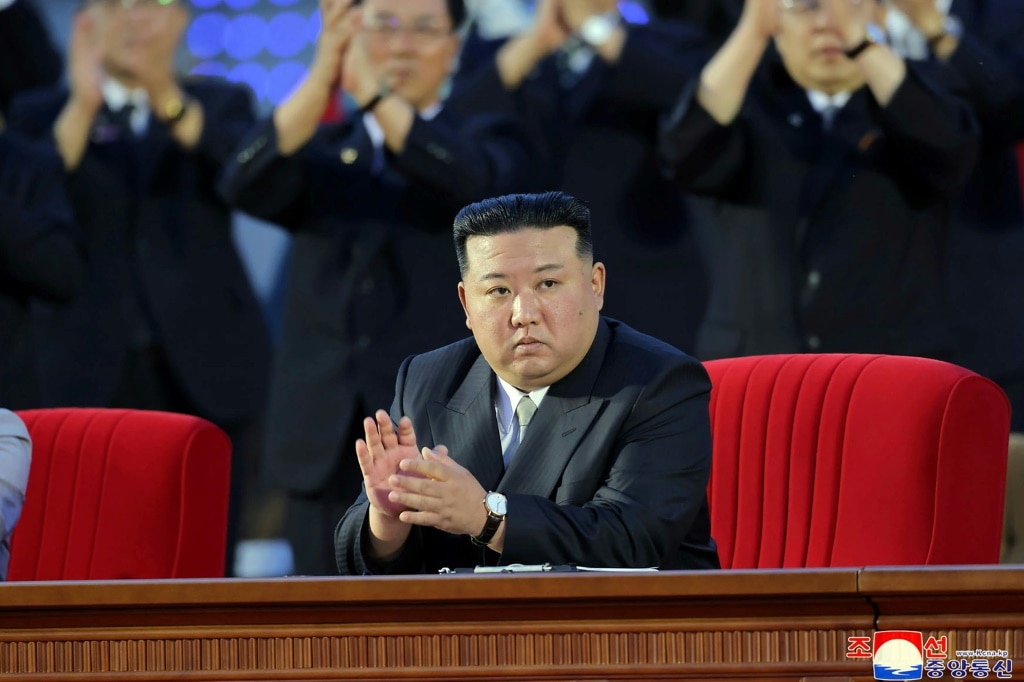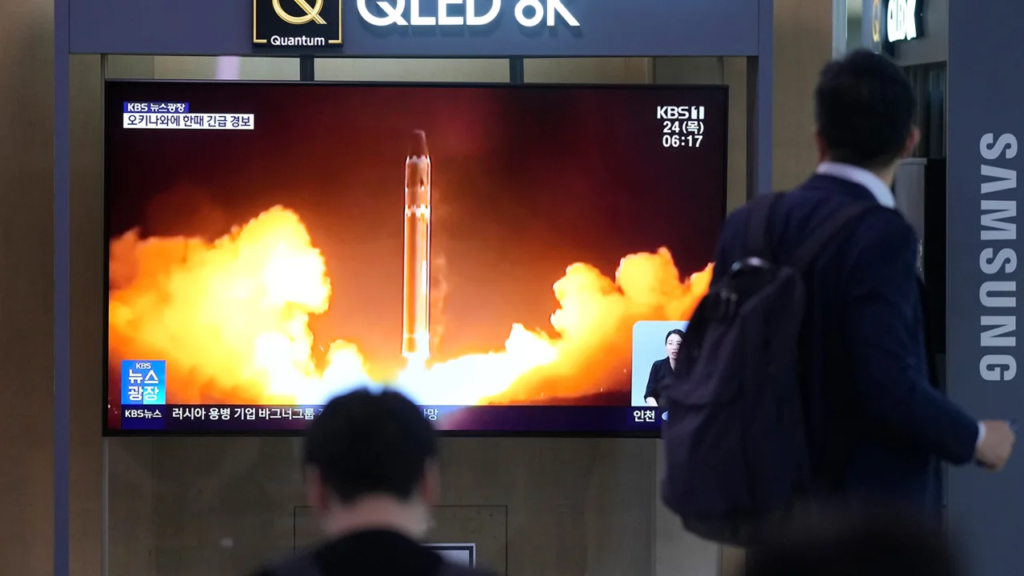On Monday, North Korea conducted a test of its most advanced intercontinental ballistic missile (ICBM) with the potential to reach the United States, marking a record-breaking number of weapons tests in the current year.
South Korea reported that the North fired an ICBM using solid fuel, making the missile easier to transport and quicker to launch than liquid-fueled versions. This test, the third of its kind, follows launches in April and July, indicating ongoing efforts to enhance the technology.

The United States, South Korea, and Japan swiftly condemned the missile test, citing a violation of United Nations Security Council resolutions and a threat to the security of the Korean peninsula.
South Korean President Yoon Suk Yeol called for an “immediate and overwhelming” countermeasure and urged a joint response with the United States and Japan. Japan’s defense ministry estimated the ICBM’s potential range at over 15,000 kilometers, covering the entire United States.
While the United Nations Security Council has issued multiple resolutions urging North Korea to cease its nuclear and ballistic missile programs, China, a close ally of North Korea, did not directly respond to the latest launches. Instead, China released a statement emphasizing the deep trust between the two nations.
North Korea declared itself an “irreversible” nuclear power last year and has consistently asserted that it will not abandon its nuclear program, considering it crucial for its survival.
The latest ICBM, likely the Hwasong-18, uses solid fuel, allowing for immediate firing from a mobile launcher. However, experts suggest that North Korea has yet to perfect certain technical aspects, including re-entry technology and multiple warhead capabilities.
The recent missile tests occurred amid escalating tensions between North Korea and the United States-South Korea alliance, with both sides engaging in heated rhetoric. The U.S. and South Korea warned that any nuclear attack by North Korea would lead to the end of the regime.
Additionally, North Korea criticized the allies’ plans to expand joint military exercises, including a nuclear operation drill, leading to heightened military posturing along the Demilitarized Zone (DMZ) separating the two countries.


